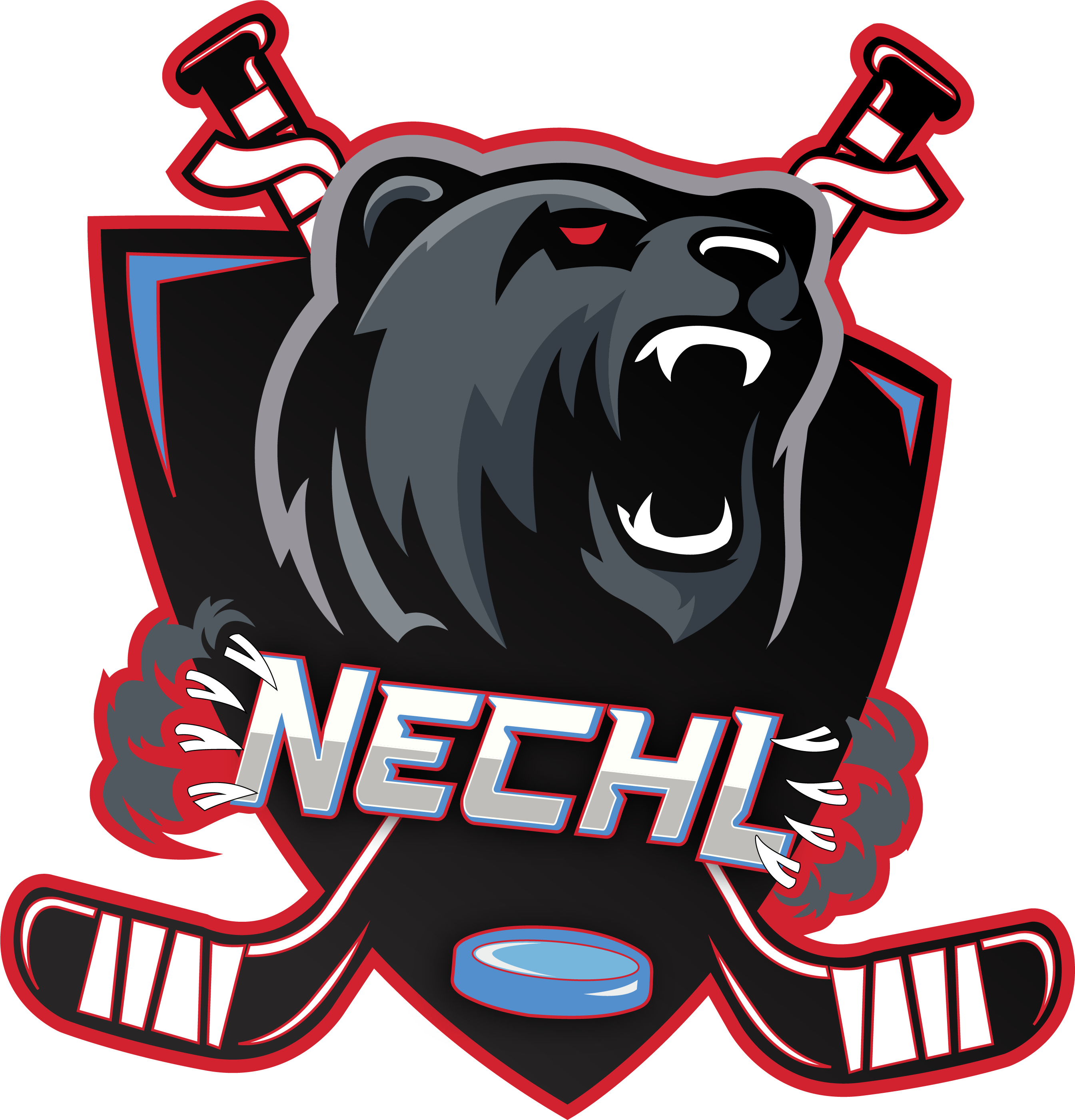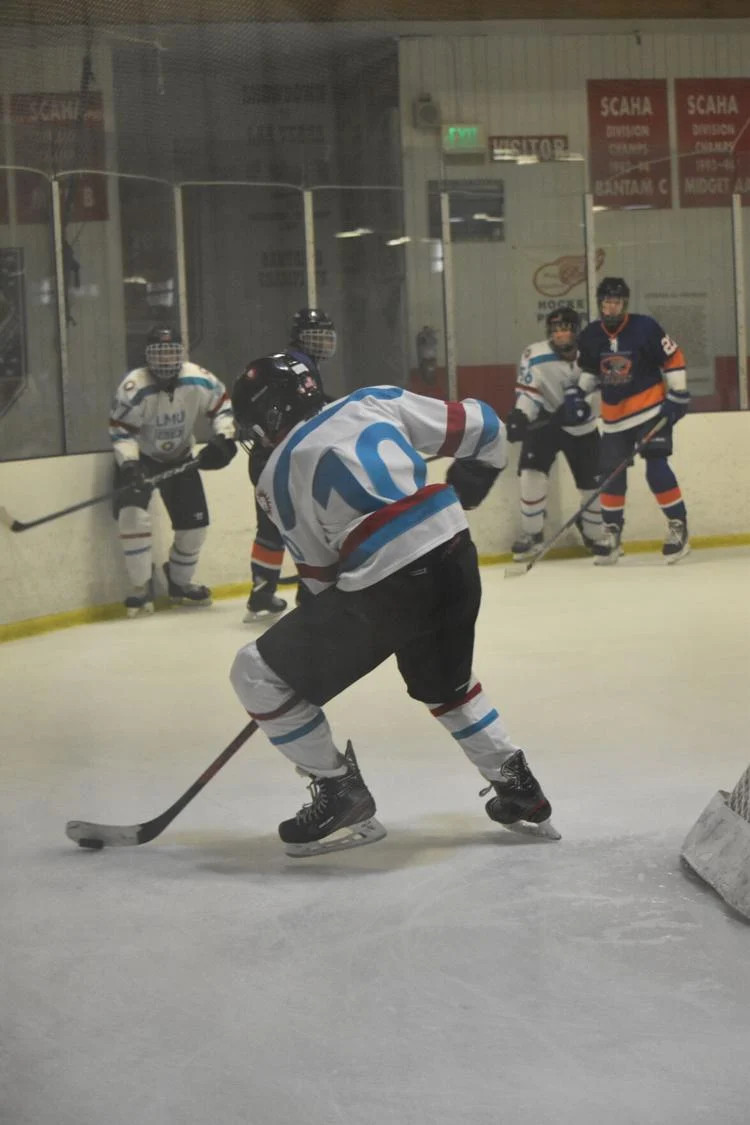From Los Angeles Loyolan
By Catherine Galanti
When it comes to sports in California, hockey probably isn’t the first thing that comes to mind. LMU ice hockey is trying to change that, and for good reason. Last year’s season was historic — the team finished with a 19-7-1 record, was named the West Coast Hockey Conference (WCHC) champions, made the American Collegiate Hockey Association (ACHA) regional tournament for the first time since 2015 and won a game at Regionals for the first time in team history.
The team has laid a foundation of success, though they’ll be playing without last year’s captain and alternate captains, as well as the rest of last season’s primary starters. The presence of these players will be missed, but the example that was set will allow current players, like senior forward Gabi Rodriguez, to step up.
“It means the world [to be a team leader]. This team has been there for me throughout my entire college experience, and not having my sophomore year season because of [COVID-19] took a toll,” said Rodriguez. “Being able to close out my college experience with the team and the sport that I love the most really does mean the world to me. Having such a strong team this year and having guys who are really invested in our team and our season and our future as a program is very, very important to me.”
Sophomore forward Riley Watters emphasized the opportunity for everyone to be a team leader, regardless of class level. He is taking on the role of being team president, saying that he takes the responsibility with pride and being trusted with this role is incredibly meaningful.
“We’re relying on all returners to step up. Even [if] you didn’t have big roles last year, we all have to come together and be there for all the new people, especially the freshmen,” said Watters. “I think we all, in a sense, have to become like a captain. Even if we don’t have a letter, we have to be a leader for everyone on and off the ice. Especially off the ice, I’d say too, because we’re only on the ice three [or] four times a week, so the other days we have to help build team chemistry. Even if we don’t have an official role, we have to kind of make one.”
The shift in the team is apparent, not only due to the loss of last year’s seniors, but with the addition of 11 freshmen and transfers. Many of them have played either internationally or in semi-pro junior leagues, which will make it all the more important that they jump in and contribute immediately.
“[New teammates] definitely need to fill some roles. We need to fill some points. We had some big point leaders last year that graduated. Austin Billings, our captain last year, had I think, 50 plus points. One of our assistant captain defensemen had around 20, 25 plus points,” said junior forward Spencer Engstrom. “We definitely need some of the younger kids to get into the role of putting up some numbers, but at the same time, just being out there and working hard is what we want from everybody.”
Throughout last season, one common thread was how “bought in” the whole team was. Keeping the team chemistry is still a priority as the new season begins.
“As a senior, I want the guys below me to have the same experience I did. That all comes with each person on the team being equally invested and all on the same page. I want to build this program and I want it to be as big as it can possibly be — hopefully [NCAA Division 1] level eventually,” said Rodriguez. “I think that kind of starts with each person being equally invested into our season and into our team so we could just keep winning and keep making a name for ourselves here in the west.”
Watters added that he hopes that every player brings their own “uniqueness,” and that the different perspectives and experiences strengthen the team as a whole.
“We all are bringing something new to the table. We all have a similar goal — to perform, to play hockey. Then off the ice, we are all different individuals and that really makes us unique as a team,” he said. “We all come from different parts of the country, and we even have some international people. It’s really cool to see how we all have different perspectives of life and we all come together.”
The team is entering this season with the understanding that while being successful is never easy, the return to Regionals will be a steeper climb than in years past. The WCHC expanded this offseason, adding seven more teams to the conference. These teams are more competitive than some of the programs that LMU has faced in the past, which will impact how LMU prepares for each matchup.
“We’re competing with teams that are better in our conference. We’re not going to have games that we would look at as maybe more relaxed and not as competitive. Each game is extremely competitive this season,” said Rodriguez. “We fully expect each practice to be competitive, each off-ice workout to be competitive because each game cannot be taken lightly. A game or two being won or lost can really decide if we go to Regionals or not. Each game really is a battle that we’re going to have to gear up and lace up for.”
Rodriguez’s perspective was echoed by Engstrom, who said that playing at a tougher level is motivating, not intimidating.
“I love the added challenge, and I think a lot of us also love the added challenge. A lot of the new kids that came in are wanting that challenge, and that’s kind of why they are now here. Us making Regionals was definitely huge for our program, and we’re planning to be back there again,” said Engstrom. “I know teams like East Texas Baptist University, [who] we played in Regionals, are not very happy that we won, and we’re playing them again this year … We want to play them as well. They’re a very good team and we’re going to be good as well, so it should be fun.”
One additional source of motivation for the team is the return of bus games, a fan-favorite tradition.
“We are very excited to have even more fans this year and it gives people more of a reason to show up. No excuses, I’d say. When we have fans there, we definitely play a whole lot better because we have some more people to play for and it kind of gives us inspiration,” said Watters. “Seeing them cheer for us all gets our confidence up, and when we’re confident, we play a lot better as a group. I hope they know that the louder they are, the better we’ll play.”
Among the numerous goals for the season, having more fans at the games is all part of the plan to build LMU’s hockey legacy.
“Building LMU’s community of hockey is another big goal. [We want to let] more people know we have a team here, and let people know that we have a lot of fun at our games,” said Engstrom. “Just building that awareness and bringing more people out to the games, maybe getting some more funding from the school would be awesome.”
As for Rodriguez, his hopes for the season are simple.
“I would like to just show teams all over the West Coast now, even all over the nation, that LMU is a hockey school. We’re here to stay and we’re here to compete.”
(Originally published at https://www.laloyolan.com/sports/club_sports/lmu-is-a-hockey-school-building-on-recent-success-is-key-for-future-of-hockey/article_feacd346-b0b0-5a05-ac74-809e86a3533d.html)
































